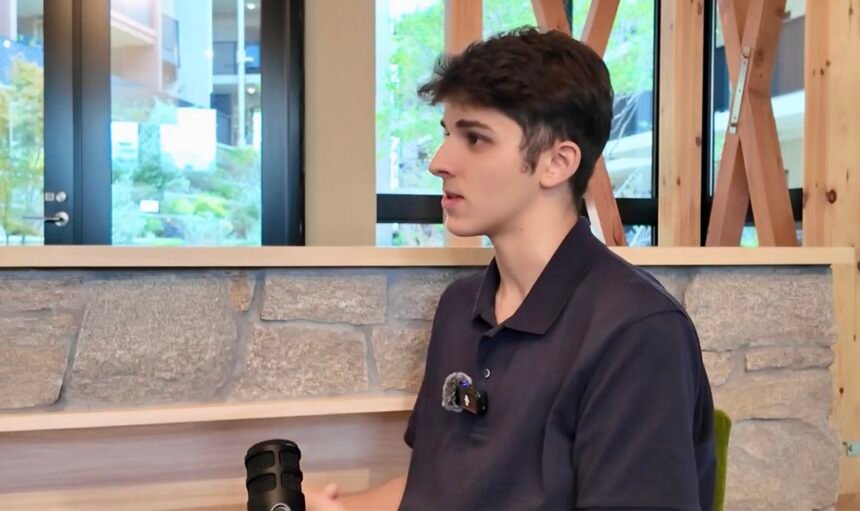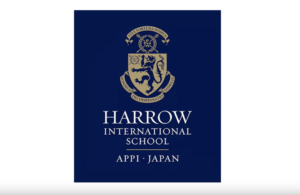In this engaging episode of “International School Times Global,” we dive deep into the world of educational philanthropy with a remarkable young leader, Emre Caglar. Emre, the founder of Youth for Future (YFF), joins us to discuss his journey from an international school student to the head of an organization dedicated to uplifting underprivileged children through education. His story is not just about charity; it’s about fostering a vision for the future where every child has access to the tools needed to thrive in an increasingly globalized world.
The podcast uncovers the inception of Youth for Future (YFF), which started with a mission to tackle multiple Sustainable Development Goals but soon focused on education as a critical lever for change. Emre explains how his background in the International Baccalaureate program shaped his approach to education, emphasizing service learning and student-centered initiatives. His narrative traces Youth for Future’s shift from providing physical resources to developing a comprehensive educational framework, particularly tailored for children in Japanese orphanages.
We explore the intricacies of engaging with these communities, where Emre highlights the unique challenges faced, such as teaching basic research skills due to the surprising digital gap. The conversation delves into how YFF aims to not only teach English and promote global citizenship but also to empower these children with a broader perspective of the world, potentially altering their career trajectories from the limited options they’re typically exposed to. Emre’s insights into the volunteer aspect of YFF reveal the organization’s appeal to young, driven individuals who want to contribute to a cause they deeply resonate with, showcasing the vitality and potential of youth-led initiatives in effecting social change.
Transcript
Emre Caglar: [00:00:00] And usually when you think about helping children with education, I think most people think about, you know, going to a, you know, lower developed country and donating school stationery supplies and kind of assisting in assisting those kids through that. And that’s exactly how we started, actually.
Ivan Fedoroff: [00:00:30] Welcome to International School Times Global. My name is Ivan Fedoroff. We’re here with Emre Caglar, founder of Youth for Future. Welcome.
Emre Caglar: [00:00:39] Thank you so much for having me.
Ivan Fedoroff: [00:00:41] Well, I learned about your organization earlier this spring. I thought it was quite fascinating. And I’m glad that you were able to come on this podcast and talk about it. Yeah.
Emre Caglar: [00:00:54] Thank you. Yeah, it’s great to be here. Excited to talk to you. And, you know, see where this Conversation goes.
Ivan Fedoroff: [00:01:01] Before we go too much about your organization that you started. I’d love to hear about the journey that you’ve taken because I find it very fascinating. You’re not Japanese, but you were born here. You went through the international school systems and you’re now in university. Maybe you could talk to us a bit about your international school route to where you are right now.
Emre Caglar: [00:01:31] Sure. Yeah. So I actually started my international school journey in preschool. That’s when I, you know, before that I was in Hoi An, actually. So I entered I attended Shinagawa International School for my primary years, and then I moved on to Horizon Japan International School for my middle school and high school academic studies. Throughout my whole 12 years of education, I went through the IB program, so the three PYP, MYP and DP went through all of them, experience them and yeah.
Ivan Fedoroff: [00:02:08] And what was the. The IB program part, the one where you were in high school. It seems like that’s somehow connected to you starting this organization. Yeah.
Emre Caglar: [00:02:24] So I think what I really love about the IB program is that it’s really focused on student centered education. So it’s based on what the student wants to learn and has the passion towards learning. And what I primarily like about it is not only in in high school, but throughout the whole program. They really deliver this service learning mindset to students. And I think that what really kicked off my organization was this whole 12 years of academic journey where, you know, the IB program really taught me the service learning mindset, not only through the cast projects we do in high school, but through the exhibition we did in grade five. I experienced in middle school, I did service projects and that all kind of built up towards my high school project, which is building my own organization through the Cass Project.
Ivan Fedoroff: [00:03:16] Thank you. And for those of us who are not familiar with Cass what is it and how is it connected to IB?
Emre Caglar: [00:03:24] So Cass is a part of the requirement and the diploma program in the DP program. So basically there’s three elements to it. There’s creativity, activity and service. And students have to complete projects based on all those three components. And I was primarily really passionate about service, which is kind of like getting involved in the community and helping a certain community. So that is kind of what Cass is.
Ivan Fedoroff: [00:03:53] And it’s interesting that you talk about service and you talk about community. You know, people often talk about how an international school experience is almost like a bubble within Japan. And some people complain that there’s almost a disconnect between the international schools and Japanese society. But it seems like for you, it was an opportunity. Right. What what was it like being a foreigner here in Japan, going to international school? Were you able to really connect to Japanese people, culture, society, and how did that inspire you to think about this global, not global, but currently community service thinking and learning.
Emre Caglar: [00:04:45] Right. So I think that the way I can see how I’m connected to Japanese society is because of how it’s becoming increasingly multicultural. So there’s not so many people, so not so many people right now, but there’s many people who are coming in from abroad, and I think that trend is currently increasing as we go into the future. So being someone who was born here in Japan and raised in Japan but still being a foreigner, I really have that mission towards kind of bridging these two communities together. You know, these people from foreign countries abroad coming into Japan and the Japanese society as well, because I feel like I have experience and kind of have a good understanding of both communities in a way. So that’s kind of I think what really inspired me to also start taking action based on that through the organization I started
Ivan Fedoroff: [00:05:39] Well, we’ll get back to Youth for Future because that’s that’s what I really want to learn so much more about. But I do want to also talk about the fact that you did graduate from horizon and you’ve had, you know, you could have chosen to go to university abroad. But you decided to stay in Japan. Could you walk us through, like, the process of being an international school student, but still choosing to go to a Japanese university?
Emre Caglar: [00:06:16] So I think that that side of thinking of, you know, staying in Japan really started a bit before I applied to university at all. It was kind of like in ninth grade early in middle school, I didn’t really have someone I could look up to in school. So I really wanted to be that figure, you know, where students can someone who students can look up to and kind of be inspired in a way. And I’ve lived with that. I would call it that philosophy for quite a while in my high school life. And the really main reason I wanted to stay in Japan is because, you know, I felt like there was more to serve in the community in terms of like, you know, inspiring the students at my school, and I felt like if I were to go abroad, I would quite feel somewhat of a disconnect. And specifically why I chose Keio University, which is, I think one of the major decisions of my life is because the program I specifically go to is called the Pearl program. It’s the program for economics, alliance research and leadership. And their mission is to really, you know, bring up, build the future leaders of this world. And I think that’s something I can align with as a personal mission as well. So that’s why I chose to go to Keio and specifically go to the Pearl program.
Ivan Fedoroff: [00:07:36] Yeah. Excellent. So I’d love to hear about your experience at RKO. So it sounds like it’s a program apart, perhaps from the typical programs offered at the universities. What is it like for the foreign community or international school? A student community at Coe. Do you feel like you are part of the university as a whole? Do you feel somewhat separate? What is the what’s the interaction between you and the university?
Emre Caglar: [00:08:18] Yeah, sure. So I think what’s important to note is that as a pro program, we’re the only English program based in Hiyoshi campus, which is where we study right now. Of course, we have the masters students, which is in a different building, but we’re really kind of like a very small group of foreign students studying in this campus. So it’s almost as if, like, we’re all kind of we all come together in a way. It’s like an international school community. We only have like 100 students in our program. So everyone kind of knows each other, everyone’s friends with each other and within the program, it’s like a friendly environment, just like an international school. Everyone kind of knows each other when it comes to university as a whole. I think that there are many opportunities to interact with the Japanese students and the Japanese programs. Keio is known to have around 500 to 600 circles, which is which is what we refer to as student clubs. So there’s many opportunities to join them. And it varies from things from like sports, from like any sport you can think about to other activities related to like major specific ones, like there’s like a economics student body which focuses on economics research. And there’s various organizations you can get involved with. You can all anything you can imagine. We have like chaos circles.
Ivan Fedoroff: [00:09:39] So if you’re able to speak to younger students who I think you’d be a wonderful mentor to, and perhaps they’re thinking about going to Keio University. What what would you tell them or what’s what’s some advice you can give them?
Emre Caglar: [00:09:59] Right. I think the first one is pretty obvious. It’s to study hard. Okay. You you have to really put the work in and, you know, get your grades as high as possible because it is a pretty competitive. I mean, it is a really competitive program to get into. So that would be my first advice. The second one is I think more about the expectations side. You know, most of these students who actually joined the program used to go to an international school. So we were somewhat used to a smaller community. But when you go into KL, you’re in a campus with maybe 5000 students, and he or she or maybe even more than that, more or less than that. So I think that’s a big change, especially for me as well, which I kind of took time to adapt to and get used to, is being involved in such a big community. Sometimes you don’t feel like, you know, you’re not really a part of it. You’re not serving the community in a way. But yeah, I think that’s a big change. So I’d say those two are the main points.
Ivan Fedoroff: [00:10:59] Excellent. Thank you for thank you for sharing that. I do want to go back to your IB years because it seems like that’s the birthplace of your organization. So maybe you can take this time to just tell me how it got started. And also if you could also tell me why it still exists, because very often, you know, high schools students might start something like this, and then they move on to college and they leave something like this behind. So I’d love to know why you’ve decided to also keep keep this going. Right.
Emre Caglar: [00:11:40] So Youth for Future. When I initially started it, it was based on supporting kind of all the sustainable development goals out there, which are referred to as the SDGs. So I was passionate about, you know, all the global issues in the world, but obviously I think it was soon enough. As a team, we realized that, you know, that lacked some sort of a vision. So we shifted towards focusing on education, which was really my specific passion as well. I mean, like I mentioned, you know, I really wanted to inspire the next, you know, the youth to start doing similar actions and, you know, kind of help them support them throughout their journey. So that’s why we focused on education. And usually when you think about helping children with education, I think most people think about, you know, going to a, you know, lower developed country and donating school stationery supplies and kind of assisting through assisting those kids through that. And that’s exactly how we started, actually. We would do donations to of school stationery supplies to schools, specifically in Kenya with the primary school there. And the reality is that we did our first donation and the photos came in and it was, you know, it was amazing to see how the students were very happy And I would say that happiness from my end, looking at those pictures maybe lasted for 30s, because the reality is that, you know, these kids are going to run out, unfortunately, run out of those resources and maybe six months.
Emre Caglar: [00:13:08] So then we were kind of like, you know, we really need a financial foundation to actually support these kids abroad. And which we currently locked. What we really had was a great team which is passionate and able to make, you know, big change. If it were a local community we could engage with. So that’s why we focus on the kids in Japan. We shifted our focus to kids in Japan, and obviously there’s a lot of different children who are, you know, having difficult times. In Japan, for example, there’s children who are in single mother households who are, you know, usually faced with financial difficulties. There are children who are in orphanages. And what we really wanted was to focus on a specific group of kids so that, you know, we can empower them better. So that’s what we did. We focused on we decided to focus on children and orphanages in Japan. That’s kind of like the whole journey. It’s a lot, but.
Ivan Fedoroff: [00:14:07] Well, so currently you’re working with orphanages, right? And is that your your organization on its own or do you partner up with a different organization? How does that work? Because it is not very easy to just in Japan just to want to work directly with orphanages.
Emre Caglar: [00:14:27] So I think that one of the most important things when it comes to building a nonprofit is being a learner, being a student. So when we first decided to engage with children and orphanages, we were thinking about, oh, how could we get involved? And that’s the most important thing, right? Being the student here, because you need to first understand the community you’re serving. So you have. So what we did is we went to volunteer in different nonprofits activities. And through that, we kind of learned how to engage with the children, how to engage with the homes, the orphanages themselves. And right now, how we really got into these orphanages in the first place is thanks to a nonprofit called Umu. They are they were doing these weekly classes, so we would come in to the orphanage with them. And through that we built a partnership. And now we’re building a whole program together with them.
Ivan Fedoroff: [00:15:19] And I think this is now the part that I find even I think the most interesting is actually the work that you can now do, right, with all this experience in educational experience. First, I think because there seems to be this, this build up to finally working with the community and now you’re you’re in an orphanage, you are you have access to children that many people would not have access to. So now that you have these young people, Which sounds like that’s that, that’s that’s the core principle of your organization, Youth for Future. Now that you have these young people, what do you do with them? What do you teach them? With that small amount of time that you have with them every week? Right. What can you and your other members provide for them?
Emre Caglar: [00:16:18] So as an organization, our mission is to support and empower these children and orphanages through two different aspects. First is promoting English literacy. And the second point is promoting an international mindedness. And the reason we focus on and we selected these two features is because we believe that these two were the two points which kind of locked in Japanese society. I mean, when we were if we were to talk about the English literacy in Japan only 6 to 8% of the Japanese population can actually speak it at a global business level. So when it comes to that, we really want these children through our programs to be able to take advantage of these two futures we provide to them, because when they’re 18 and they’re looking for job opportunities, we believe that, you know, having English literacy in this growing multicultural society and having an international mindedness will allow them to leverage these two futures to, you know, take advantage of the opportunities that are open to them.
Ivan Fedoroff: [00:17:20] So it sounds like you you go into the orphanages and you teach them English, right?
Emre Caglar: [00:17:26] So right now we actually launched this new program with the Umu, which is the MPO we’re working with. It’s called the Global Identity Program. So that has a mixture of English literacy, global citizenship classes. We try to integrate that into it as well, and as well as digital citizenship which is actually the focus of Umu. So we kind of combine the two to our both of our missions. We combined it and we built this program off of that. So like we do weekly classes, like I mentioned. So right now we’re focusing on teaching the kids identity and diversity. You know, how are we as people in Japan similar and different with people in other countries? So the kids are making their own presentations about a specific country that they randomly picked and exploring that.
Ivan Fedoroff: [00:18:17] I think it’s interesting to teach global citizenship, especially outside of an international school like that, because that tends to be one of the core values of pretty much every international school. So but no, instead you’re going to an orphanage where everyone’s Japanese very closed community. I mean, I don’t think you can get more clothes than that. And I think you even mentioned to me earlier that most of these orphans grew up to be, I think you said either teachers or healthcare workers.
Emre Caglar: [00:18:52] The care staff, workers at the orphanage.
Ivan Fedoroff: [00:18:55] Care staff. Workers. And could you explain why that is? And why do you think what you’re trying to teach them is so important when it comes to opportunities?
Emre Caglar: [00:19:08] Yeah. So, like you’ve mentioned children and orphanages, ideally right now they only have two specific job opportunities in mind. Which is quite unfortunate, but the two of them are, like you mentioned teaching at a school as a teacher or being a care staff worker at the orphanage. And the reality is, the reason for that is because they’re the only adults they engage with. They’re the only adults we that they have the opportunity to talk to and see. So I think that’s where the beauty of what we do comes in, right? Because we’re bringing all these university students and all these, you know, adults from different backgrounds into the orphanage. And it kind of, you know, that itself without the lessons. Let’s exclude the lessons. That itself expands their perspectives on the world. Expands their perspectives on what they could do in the future. And yeah, I think that’s also the amazing part.
Ivan Fedoroff: [00:20:05] What is the age group of the kids that you work with?
Emre Caglar: [00:20:09] Yeah. So right now the program we’re building, we’re we’ve started with the primary. So elementary school students. So I’d say maybe eight grade age eight to even up to 12 is the average age we work with.
Ivan Fedoroff: [00:20:25] What are some of the challenges that you and your members face? Yeah, I mean, I’ll say that you’re very young. I so I’m sure you you haven’t had a lot of opportunities like this in the past to teach kids. So I’d be interested to hear what are some of your challenges.
Emre Caglar: [00:20:46] So yeah, that’s a great question. So last week, actually, there was an incident in the orphanage where one of my students. I mean, you know, the students were focusing on creating their own slideshows. And I asked them, can you please put the capital city of your country in your slideshow? And I was like, can you please search that on the internet? And surprisingly, this is something I was really shocked at. They asked me, what do you mean? Search the capital city of the country. How do you do that? So I think even going and doing these classes, like the reality is that these children are unfortunately so behind that, we’re teaching them how to basically research stuff on the internet. You know, we’re eliminating that barrier they have towards research skills as well. So, you know, even that itself is, I think, something significant. And I was really shocked at that. But that really made me understand how unfortunately behind they are and how much we have or how much of a responsibility we have in getting them caught up. And, you know helping them gain full independence by the age of 18.
Ivan Fedoroff: [00:21:56] It sounds like you and your friends and your members are really doing great work. How do you picture trying to scale what you’re currently doing? And a second part of that question is how do you bring more people into your organization? Because if you do scale, you need to have more people like you.
Emre Caglar: [00:22:19] Right. So when it comes to scaling this up I think right now we have a beautiful program and we built a beautiful framework for it. And we have weekly classes consisting in this program. We have spring and summer camps. We do with the kids consisting in this program. And then we also have once in two months, like a fun activity where we bring the orphanages together and for example, like do our barbecue together or do a hike trip together. So we have all these different elements and features in this program. So ideally what we want to do is expand this program and expand the number of students who are engaged in this program. When it comes to the members we have right now, we’re approximately at 40. And in the past month, we’ve actually doubled the number of members that are organization.
Ivan Fedoroff: [00:23:09] That’s great. Yeah.
Emre Caglar: [00:23:10] So I think surprisingly, we were actually building this recruitment program where we would reach out to people through LinkedIn, our HR manager. We would do that. But right now what we’re facing is a difficulty in terms of you know, we’re having so much demand from the volunteer side. There’s many people who want to volunteer now because of how the word of mouth, word of mouth spreads between all these people who are involved and all their friends. And I think that connects back to kind of the university community overall. Right. Because there’s different English programs and various universities in Japan. But in reality, these are these students are all connected with each other in a way. And I think that is really increasing the number of people and volunteers and members we have contributing towards our initiative.
Ivan Fedoroff: [00:24:03] How do you see Youth for Future in five years? I think it’s you seem to have a clear vision right now, right. Do you see? Do you see where you hope it’ll be in five years? Potentially even ten. You will. You yourself will be graduating in 3 or 4 years. So what’s your image in your mind and what’s your goal?
Emre Caglar: [00:24:29] Right. I think when it comes to nonprofits overall the biggest issue we, I mean, people have is commitment, right? Because when we look at the reality, none of the people who work with us are paid, right? It’s all volunteer work. So if any, I mean, any of the board members or any of the management members tomorrow, they could say, oh, I want to leave and I can’t do anything about that. So I think the for the scalability of you and the continuity in five, ten years when you know, all these university students we work with have graduated it’s important to build like a financial basis. And, you know, increase the number of supporters we have in terms of companies that can fund us. When we look at nonprofits, the biggest cost they have is labor cost. So building somewhat of a strong financial framework so that, you know, we can run this nonprofit or I can continue running this profit without having to rely on volunteers and having a strong team that is there to support the mission and vision pretty much 24 over seven.
Ivan Fedoroff: [00:25:38] Well, my last question to you is a response to something you had said a bit earlier. Like you had said that the numbers of volunteers doubled and that doesn’t usually happen. What do you think draws people to Youth for Future, and why would a non-governmental organization partner up with such a young organization? So there’s there is something that draws people to Youth for Future. What do you think it is?
Emre Caglar: [00:26:15] Yeah, that’s a great question. I think if if I were to talk about what drives in people it’s the fact that I think they can quite relate with the mission we have. You know, we’re focused on English literacy and international mindedness. So all the volunteers we really get is bilingual. They have this sense of, you know, they understand that Japanese society is behind in terms of English and international mindedness. So they want to really support the community. I mean, the society they are a part of. Through these two elements. So I think the mission and vision has a part to do with it. I think also another factor is that there’s no nonprofit. I mean, there are many nonprofits in Japan, but they’re usually run by adults who are 30s and 40s. 50s. And that’s great. I mean, everyone is doing an amazing job, but I think for the youth by the youth type of nonprofit, it’s very rare to see. And I think what really drives and keeps people in youth is the youth energy we have. Everyone wants to build something from scratch because we’re completely building something from something from scratch here. And I think people want to be a part of that journey. And I think that’s what’s really bringing in a lot of people right now.
Ivan Fedoroff: [00:27:26] Well, I must say it was a pleasure to meet you. It was a pleasure to talk about your organization. That was Emre Caglar, a founder of Youth for Future. Thank you so much.
Emre Caglar: [00:27:40] Thank you so much.








